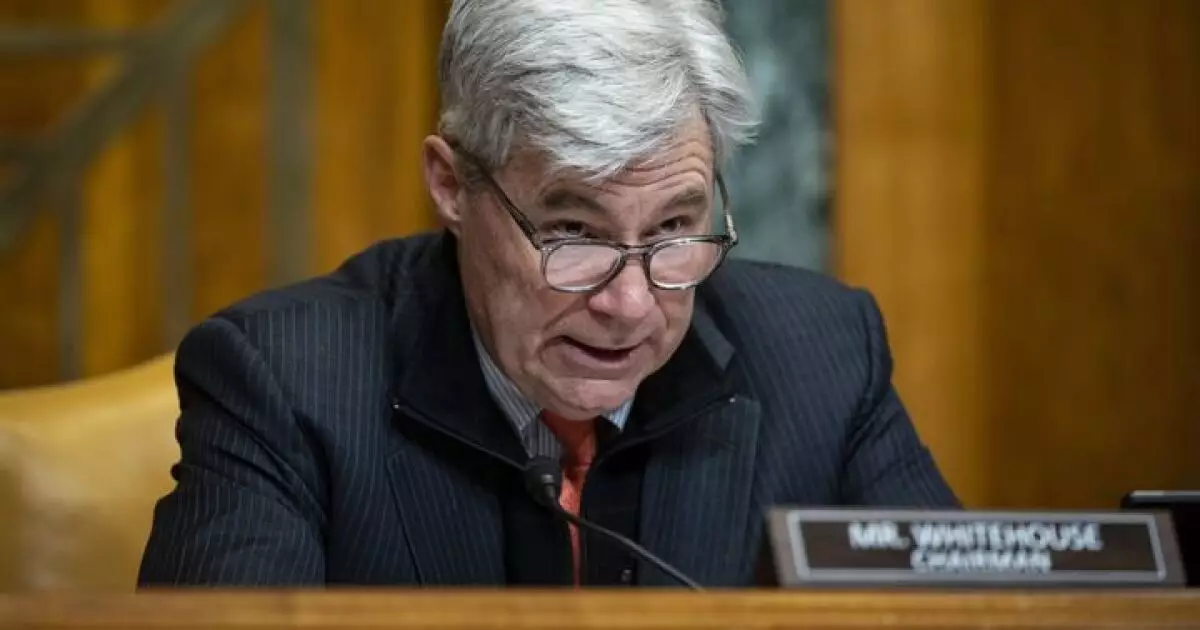The Senate Environment and Public Works Committee has found itself entrenched in a complex battle over infrastructure development, impacted heavily by the political climate under the Trump administration. With escalating tensions regarding federal funding allocations to states, the committee is grappling with the urgent need to streamline permitting processes that have historically slowed down vital projects. Ranking Member Senator Sheldon Whitehouse has vocalized the frustration among Democrats, asserting that any reforms to permitting procedures are contingent upon the Trump administration recognizing and adhering to established legal frameworks and congressional oversight. This situation underscores a broader issue of governance and the struggle for accountability and respect for the rule of law at the executive level.
During a recent committee hearing, the Senate committee sought to address the substantial hurdles associated with various critical infrastructure initiatives, including offshore wind farms, nuclear energy projects, and an acute housing crisis. It is evident that legislative stagnation has led to judicial manipulation of the permitting process, complicating matters for project sponsors. Committee Chair Senator Shelley Moore Capito pointed out that when Congress fails to act decisively, other entities exploit legal avenues to create obstacles, which not only defer projects but also inflate costs significantly. This cycle of litigation, in lieu of administrative efficiency, poses a substantial threat to the realization of the ambitious infrastructure agenda articulated in recent legislative efforts.
The ramifications of these bureaucratic delays are most acutely felt in sectors vital to job creation and economic growth, particularly in clean energy as outlined in the Bipartisan Infrastructure Bill and the Inflation Reduction Act. The remarks from Brent Booker, the general president of the Laborers’ International Union of North America, shed light on the direct correlation between policy decisions and job availability. The pause on offshore leasing, enforced by the Trump administration, has resulted not only in immediate job losses but also in a skittish investment climate that undermines confidence in the future of renewable energy projects.
Furthermore, the domestic content restrictions stipulated by the Inflation Reduction Act have complicated matters for the energy sector by limiting access to international suppliers for key components. The repercussions ripple through the housing market as well, which is now facing uncertainty regarding the status of private activity bonds that are essential for funding affordable housing developments. As officials look for solutions, local permitting restrictions emerge as an additional layer of complexity that impedes housing development—an area where local government policies could significantly impact the supply-demand equilibrium.
The National Association of Home Builders has called for a more proactive approach from legislators to deploy federal funds such as Community Development Block Grants. These initiatives are perceived as crucial aids to stimulate housing development and alleviate present shortages. Engaging state and local governments in reform discussions is essential for identifying sustainable strategies that promote economic growth while addressing the urgent needs of struggling communities.
As the Senate Environment and Public Works Committee continues to navigate these multifaceted challenges, it remains clear that a collaborative approach, rooted in respect for legal and regulatory norms, is paramount to facilitating progress. The stability of infrastructure projects, energy production, and housing development hangs in the balance, necessitating immediate attention and decisive action from all stakeholders involved.

